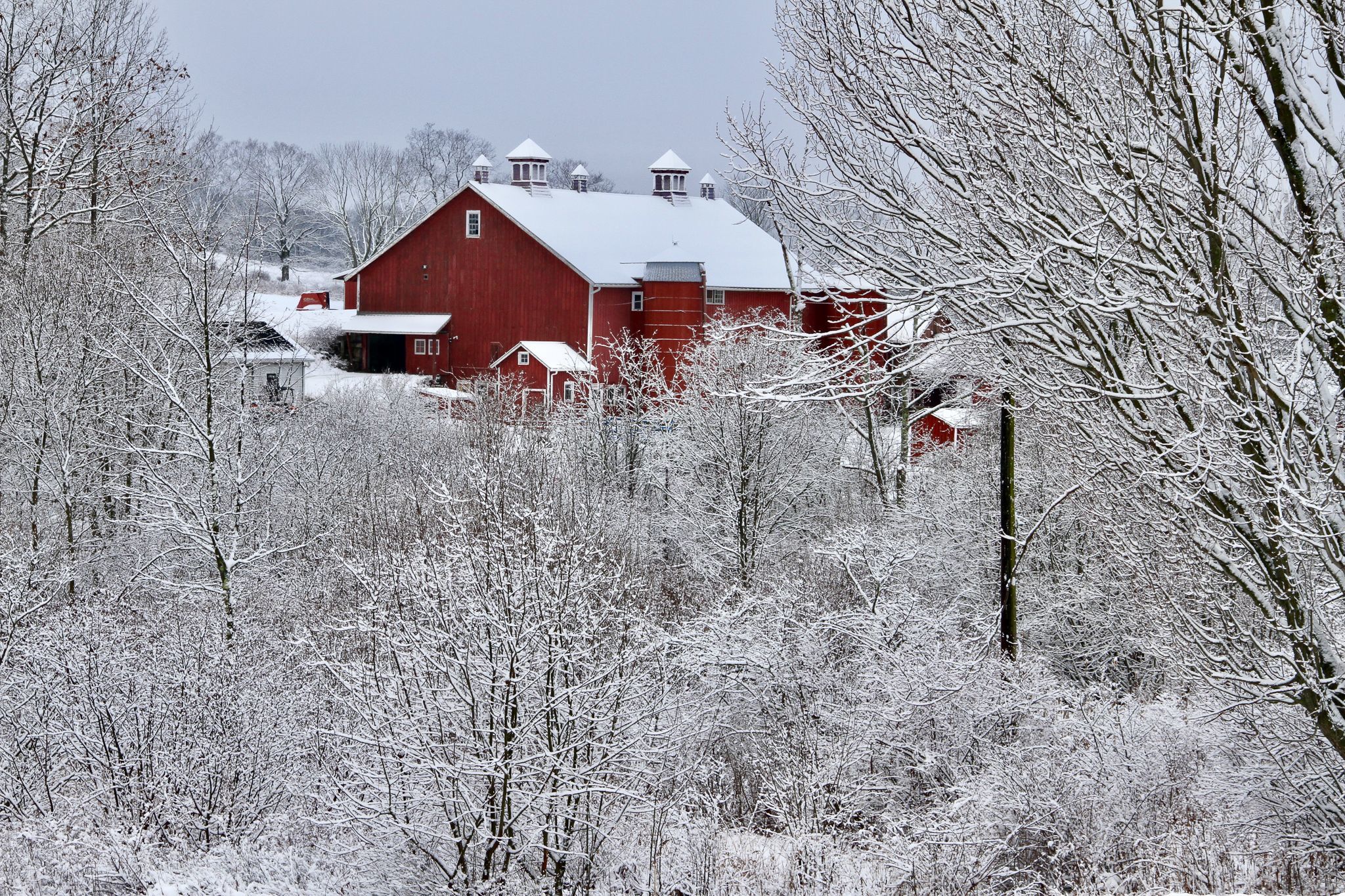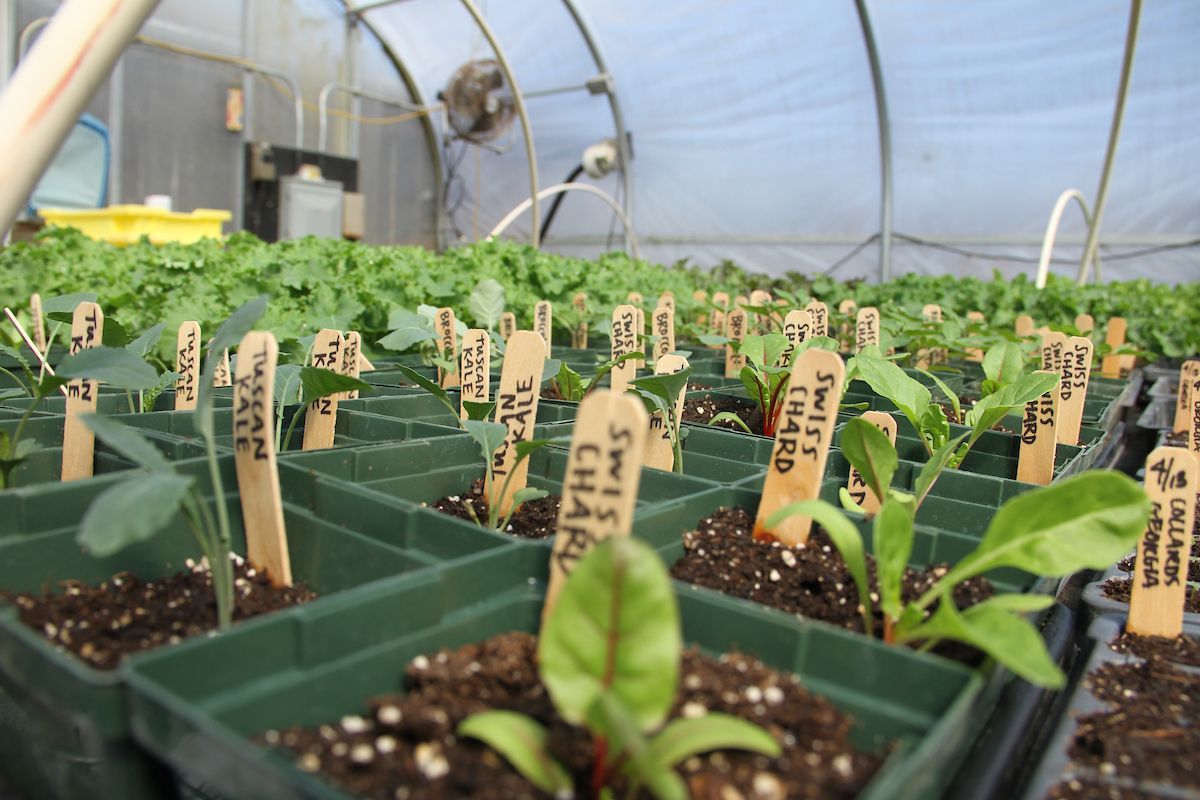
Winter is a crucial period of rest for farmers, but it is far from a season of sloth. As their backs straighten and their sleep schedules lengthen, farmers are busy in new ways, trading harvesting and irrigation for crop planning, seed ordering, machine maintenance, and CSA marketing campaigns.
For Glynwood’s Farm Business Incubator participants, winter is also an essential period of further learning. Every fall, Glynwood organizes a series of Winter Intensives based on the specific needs and interests of the incoming Incubator cohort. From Farm Law to No-Till growing, Marketing to Cover Cropping, these workshops introduce Incubator farmers to critical concepts and experts in each field. Winter Intensives additionally allow Incubator participants to learn from one another by sharing experiences, seeking and offering advice, and simply spending time together.
Although this year’s Winter Intensives have looked differently from those of past years, they have remained generative and engaging thanks to the patience, flexibility and enthusiasm of our participants, educators and organizers alike. Keep reading for a recap of all that our Incubator farmers have learned this winter!
In late 2020, we held a Marketing Roundtable with Lauren Melodia, who serves as a Value Chain Manager at the Center for Agricultural Development & Entrepreneurship (CADE). Incubator farms shared their current marketing strategies and their business goals for 2021 and beyond. In turn, Lauren shared a plethora of tips, including how to learn more about customers, how to choose the proper sales channels for your business, and how to negotiate wholesale prices with restaurants.
Our first Winter Intensive of 2021 was Crop Rotation and Succession Planning with Jarret Nelson, Glynwood’s Vegetable Manager. Jarret shared his ever-detailed farm plan and crop rotation spreadsheets, in which he tracks everything from crop failure estimates to seeding and transplanting dates, row spacing, and projected yield per unit of space. Although these spreadsheet systems are time-consuming (particularly when you are first setting them up), Jarret has found incredible value in keeping track of metrics season after season. Not only has he been able to see how different planting dates, crop spacing and bed fertility affect total yield, but he can also better strike a balance between what (and how much) he can grow and what he can actually sell.
In early February, Janyce Conner and Dave Rifenburgh of Farm Credit East joined us for a forum on Farm Accounting and Payroll. While not the most riveting topic by most standards, payroll and taxes are an essential part of setting up farm businesses effectively. Dave gave a succinct breakdown of different farm business structures and how they affect tax filing and employer/ee paperwork. Janyce picked up from there, detailing state regulations for agricultural employees such as workers compensation, unemployment benefits, and liability paperwork for unpaid volunteers.
The two presentations segued into a larger discussion about employee benefits, retirement funds, depreciation, and the difficult balance that so many farmers aim to strike between paying employees a living wage and retaining some profit to invest in new growth and infrastructure. We heard from two Incubator alums, Rock Steady Farm and Rise & Root Farm, about their respective approaches and struggles in business structure and payroll. It was a rich, reflective conversation in which we
Later in the month, we hosted two additional forums: No-Till Vegetable Production and High Tunnel Construction and Management.
During the no-till forum, farmers Kyle Nisonger (Maple View Farm and Incubator alum), Corinne Hansch (Lovin’ Mama Farm and Incubator alum) and Julie Rawson (Many Hands Organic Farm) spoke about their growing practices, including tools, scale, fertility, and why they chose to transition to no-till in the first place. Ryan Maher of Cornell Small Farms Program added to the conversation by discussing CCE’s research on the benefits of tarping, a practice that is particularly popular and beneficial in no-till growing environments.
Leon Vehaba of Titusville Farm and Sam Zurofsky of Long Season Farm were our high tunnel production experts. They discussed ordering high tunnel kits versus constructing from scratch, the financial benefits of season extension, fertilization and irrigation in covered growing space, and much more. Given that many of our Incubator farms are either already growing in high tunnels or are planning to invest in them in the future, this Winter Intensive generated active and enthusiastic conversation.
We are finishing this season’s Winter Intensives with a two-part Democratic Decision Making class and a workshop on Agritourism. Instructed by Angela DeFelice in partnership with Caitlin Dourmashkin and Micah of the Good Work Institute, Democratic Decision Making focuses on strategies for improving transparency, inclusivity, communication, and the sharing of power and knowledge in professional farming environments. Our final workshop on Agritourism will be taught by consultant Katharine Millonzi, who will shed light upon the power of storytelling and experience-building as an additional revenue stream for Hudson Valley farms.
We are so grateful for our 2020-21 Winter Intensive instructors for helping us offer such a robust, engaging educational series to our Incubator cohort. As the growing season begins to ramp up, we can’t wait to see what our Incubator farmers accomplish with their newfound knowledge.

